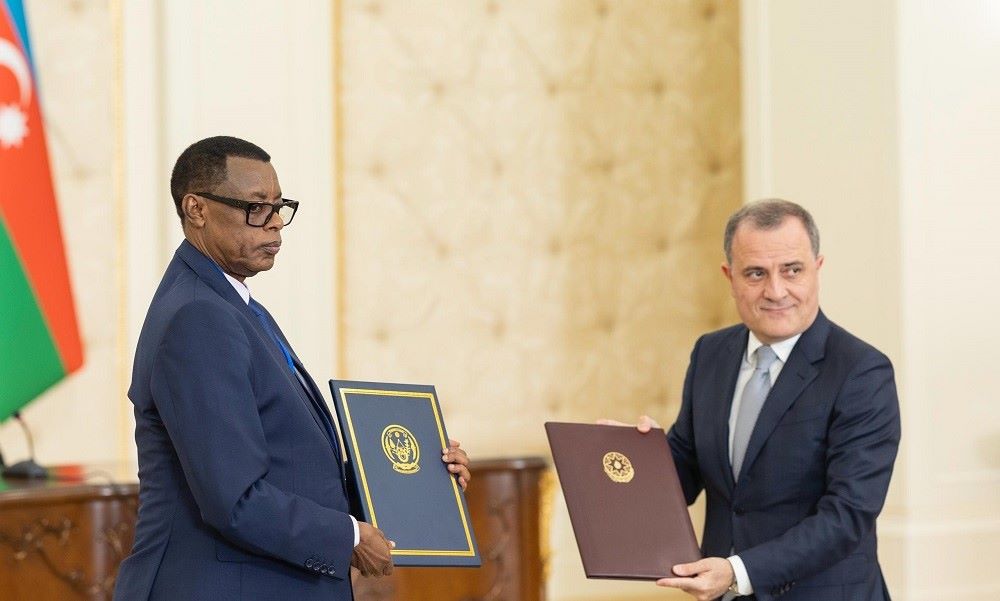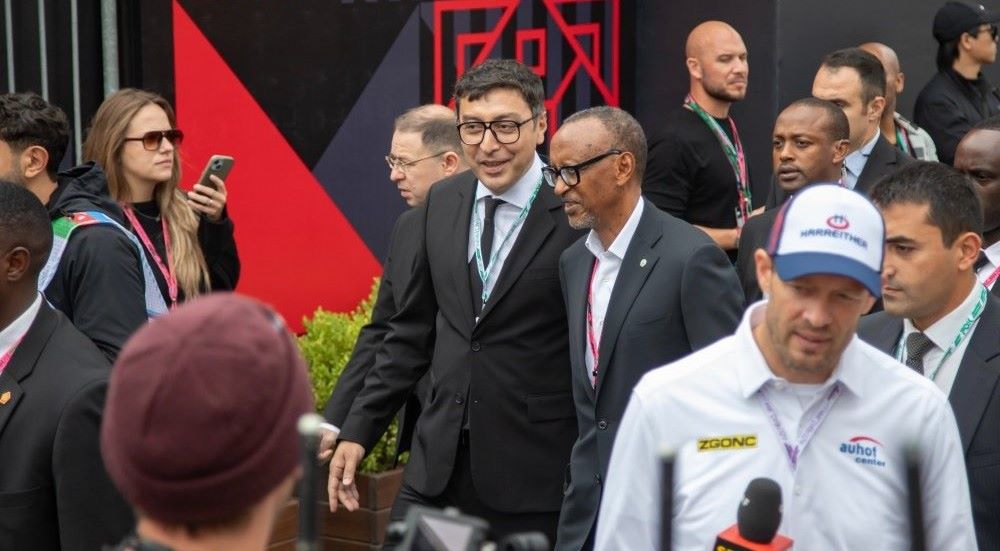President Paul Kagame’s three-day working visit to Azerbaijan has marked a new chapter in Rwanda’s international diplomacy, strengthening bilateral ties and advancing Rwanda’s ambitions on the global stage, including in motorsport.
Kagame arrived in Baku on September 19, 2025, where he was received at Heydar Aliyev International Airport alongside Rwanda’s Minister of State for Foreign Affairs, Gen (Rtd) James Kabarebe.
His visit underscored the deepening friendship between Rwanda and Azerbaijan since the establishment of formal relations in 2017.
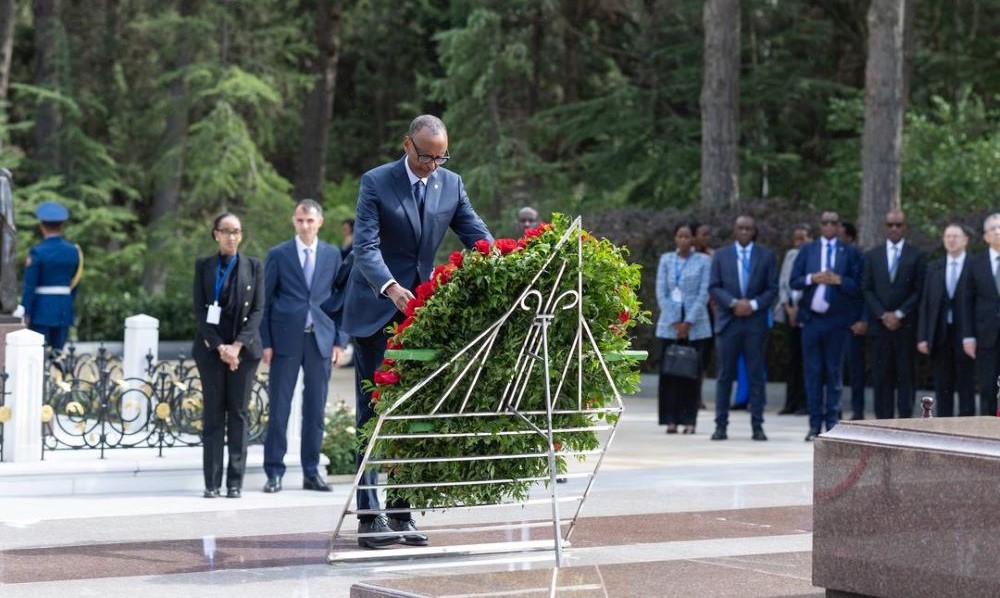
Paying tribute and building trust
On the first day of his visit, President Kagame honored Azerbaijan’s national hero, Heydar Aliyev, laying a wreath at his grave, and also paid respects at the memorial for victims of the first and second Karabakh wars.
The solemn tributes paved the way for high-level talks with his Azerbaijani counterpart, President Ilham Aliyev, at the Presidential palace.
The two leaders not only reaffirmed their countries’ growing partnership but also witnessed the signing of five landmark cooperation agreements.
The pacts covered agriculture, education, aviation, trade, and public service delivery, reflecting both governments’ determination to broaden cooperation across critical sectors.
The agreements were signed by senior officials including Gen (Rtd) James Kabarebe, Azerbaijan’s Foreign Minister Jeyhun Bayramov, Azerbaijan’s Ambassador to Rwanda Ruslan Nasibov, and Rwanda Development Board Deputy CEO Juliana Kangeli Muganza.
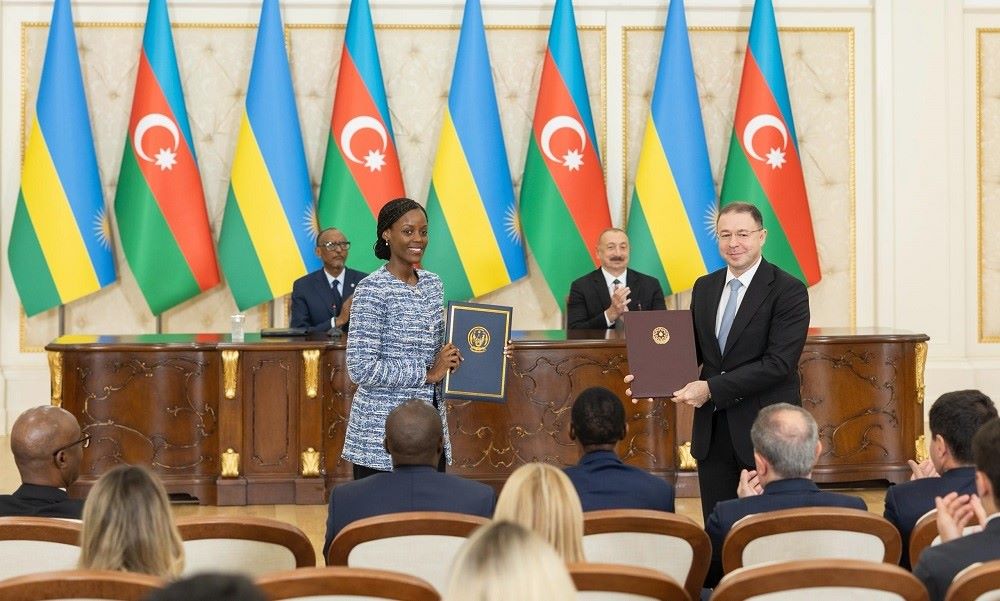
Leaders’ commitment
Both presidents stressed the importance of ensuring the agreements translate into real benefits. They discussed expanding academic exchanges under Azerbaijan’s state scholarship program.
“Mr. President, know that you have a friend in Africa, in Rwanda. We want to use this opportunity of partnership and friendship between you and me, and between our two countries, to accelerate development,” Kagame reassured his host.
President Aliyev praised Rwanda as a reliable partner and pointed to tangible progress since relations began. He called for deeper collaboration in education, noting that only one Rwandan student is currently studying in Azerbaijan.
Aliyev also highlighted Azerbaijan’s ASAN public service delivery system, which has become a model of efficiency. He pledged technical and financial support to help Rwanda build its own citizen-centered services.
Kagame later toured ASAN, remarking on its effectiveness and potential lessons for Rwanda. Following the visit, ASAN and RDB signed an agreement to develop advanced service delivery frameworks for Rwanda.
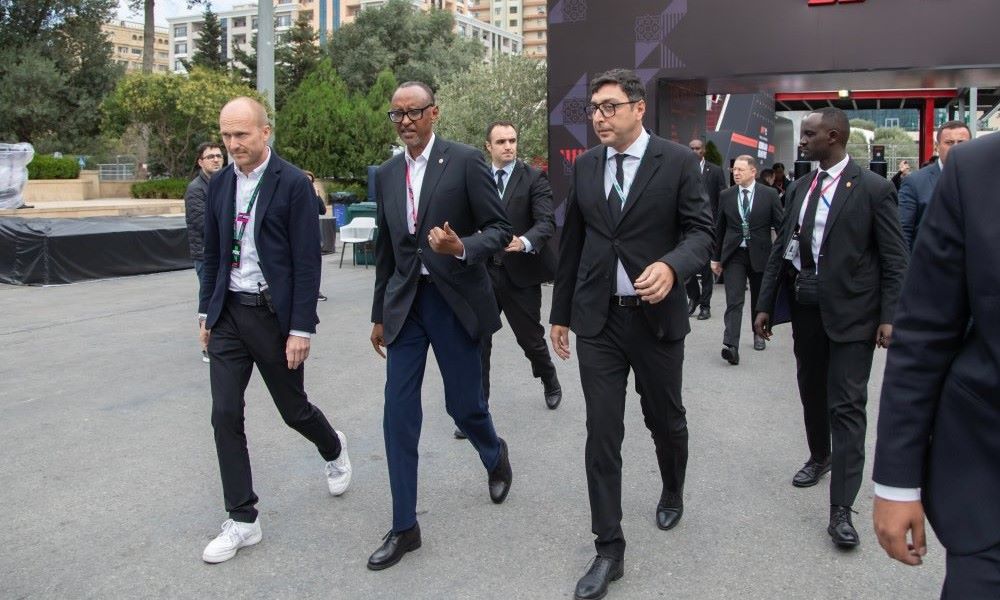
Rwanda’s Formula 1 ambition
Kagame’s trip to Baku also carried symbolic weight for Rwanda’s sporting aspirations. On September 21, accompanied by Azerbaijan’s Minister of Youth and Sports, Farid Gaibov, the President visited the Baku City Circuit, a world-class Formula 1 track.
Over the weekend, the circuit hosted the Azerbaijan Grand Prix, won by Max Verstappen of Red Bull Racing, who is battling McLaren’s Oscar Piastri for the season title.
For Rwanda, the visit highlighted Kagame’s vision to position the country on the Formula 1 map. Last year, Rwanda formally submitted its candidacy to host a Formula 1 race, the first on African soil in more than three decades.
Negotiations remain underway, with Rwanda’s Sports Minister Nelly Mukazayire confirming that discussions are progressing positively.
Kagame has previously toured other iconic circuits, including Singapore’s Marina Bay Street Circuit and Qatar’s Lusail International Circuit. His presence at Baku reinforced Rwanda’s commitment to bringing the high-profile motorsport to Africa.
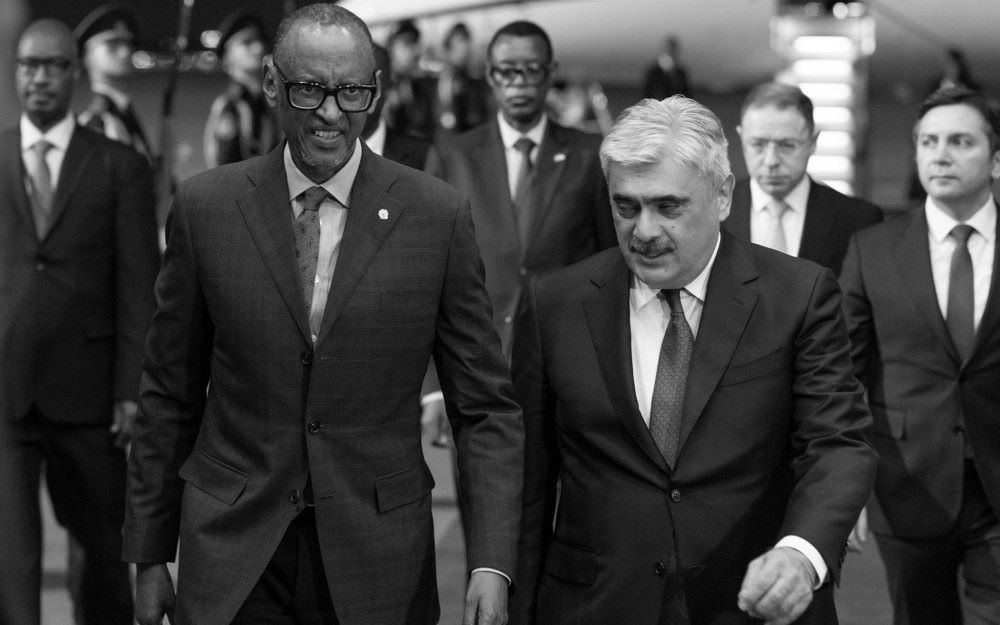
A growing global role
Kagame’s visit follows his participation in Baku’s COP29 climate conference in November 2024, further underlining Rwanda’s expanding role on global issues. With the latest agreements and strengthened ties, Rwanda and Azerbaijan are positioning themselves as partners driving innovation, education, and service excellence.
The convergence of diplomacy, development, and sport during Kagame’s visit illustrates Rwanda’s broader foreign policy of cultivating strategic partnerships while seeking opportunities that elevate its global profile.
